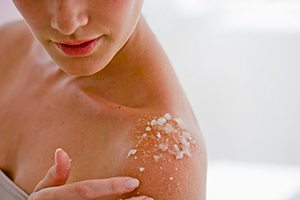A group of chemicals that are commonly found in most beauty and personal care related products could be more harmful than previously thought.
Parabens, which are a type of preservative found in everything from shampoo, conditioner and deodorants to moisturisers and sunscreen have been the subject of multiple investigations over the years.
Their carcinogenic properties have been the topic of conversation surrounding cancer research and their use has been linked, if only partially, to an increased risk of breast cancer – as well as other reproductive issues.
Although these parabens work by mimicking the growth effects of estrogens on breast cancer cells, previous studies have found no concrete evidence that points to their use having tangible effects on these cells.
However, a new study conducted by the research team at Berkeley university has begun investigations into the effects that parabens can have on these cells – when combined with other, external agents.
“Although parabens are known to mimic the growth effects of estrogens on breast cancer cells, some consider their effect too weak to cause harm,” said lead investigator Dale Leitman, a gynaecologist and molecular biologist at UC Berkeley and an adjunct associate professor of nutritional sciences and toxicology. “But this might not be true when parabens are combined with other agents that regulate cell growth.”
Existing research has been unable to provide conclusive results because parabens have only been studied in isolation. According to Leitman, initial studies “fail to take into account that parabens could interact with other types of signaling molecules in the cells to increase breast cancer risk.”
The research team at Berkley attempted to move past this by looking into two types of receptors: estrogen and HER2 receptors.
With the latter being present in approximately 23 per cent of breast cancer cases, cancers that contain HER2-positive tumours “tend to grow and spread more aggressively than other types of breast cancer.”
By utilising this knowledge, researchers activated the receptors in the cells using a growth factor called heregulin – naturally produced in breast cells. At the same time, the cells were exposed to selected parabens.
The results showed a significant proliferation in cell growth, even at levels 100 times lower than in cells deprived of heregulin.
This study attempts to raise the issue of parabens, stating that their potential for harm may be seen in much lower doses than previously suggested.
The findings also raise questions about current procedures for safety testing that could be detrimental to finding out exactly what effect parabens are having on human health.
“One problem is that the breast has become a dustbin for environmental chemicals. It’s a very fatty part of the body so any fat soluble chemicals that are absorbed from the environment can linger in the tissues, ” said Dr Philippa Darbra, Associate Professor of Oncology at the UK’s University of Reading.
“While this study focused on parabens, it’s also possible that the potency of other estrogen mimics have been underestimated by current testing approaches,” said co-author Chris Vulpe, a toxicologist formerly at UC Berkeley but now at the Center for Environmental and Human Toxicology at the University of Florida College of Veterinary Medicine.
“There’s still some way to go but it’s a clear indication from regulators that something is not quite right,” Darbre says. “We need to look at our use of these personal care products and cut down on or cut out their use. We’re told we need all these products but we don’t.”







